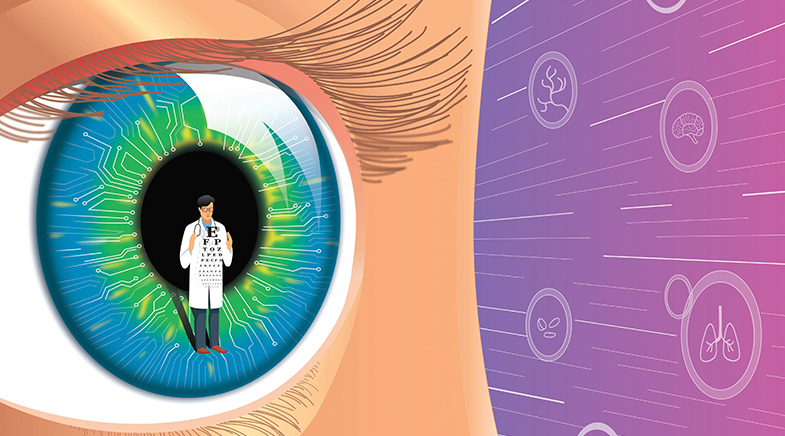This smart pack gives out a spoiler alert
-
- from Shaastra :: vol 03 issue 04 :: May 2024

Smart food packaging that alerts us to food spoilage.
Sangeetha U.K. was interested in developing sustainable packaging materials as a new PhD candidate in 2022 when a discussion with her guide led the two to converge on the idea of developing a bio-based and intelligent packaging material. They wanted the material to be fully compostable and to build into it the ability to sense the freshness of a packed item.
Sangeetha and Sushanta Kumar Sahoo, Senior Scientist at the CSIR-National Institute for Interdisciplinary Science and Technology, in Thiruvananthapuram, Kerala, first started with a carrageenan-based film. Derived from a red marine alga, carrageenan is recognised as a biomaterial suited for making flexible, film-like packaging. But the challenge with carrageenan films is that they do not have adequate mechanical strength or barrier properties. Barrier properties are a measure of how well a material can resist the absorption of light, moisture and oxygen, and thereby protect against deterioration of the packed material.

The researchers knew they had to come up with a way to overcome these challenges. Existing literature showed that one way to improve the mechanical and barrier properties of carrageenan films was to incorporate carbon dots—a type of carbon nanoparticle that can fluoresce. The properties of carbon dots – biocompatibility, biodegradability and low toxicity – aligned well with the research objectives.
There are many ways of synthesising carbon dots. Sahoo and Sangeetha chose to work with coconut husk as a precursor. In Kerala, the southern Indian State where their lab is situated, you are never too far from a coconut tree. Coconut is abundant and so is coconut husk or coir, a by-product of the coconut industry. Making carbon dots from coir is a multi-step process that begins with extracting lignin – a carbon-based biopolymer – from the coir using a series of chemical treatments. Through another series of high temperature and chemical treatments, the researchers tinkered with the chemical structure of the biopolymer and added new functional groups to it. In this case, they chose amine groups that made the dots pH-sensitive. Eventually, they prepared a carrageenan film with 2% carbon dots.
Development of intelligent packaging hinges on a deeper understanding of the biochemistry and physiology of food items.
This carbon-dot-fortified carrageenan displayed better hydrophobicity and tensile strength, and reduced oxygen transmittance rate by up to 79%. In addition, the film also displayed antibacterial and antioxidant properties. The antioxidant property was an "unexpected surprise", says Sahoo. The researchers tested the film's pH-sensing ability with milk. As milk's pH changed, the fluorescence emission of the packaging film also changed from blue to green. They are now working on developing carbon dots with other types of intelligence—one than can sense the chemicals produced when meat is going bad and another one for sensing humidity changes in food.
The future of food packaging is sustainable, says Sahoo. At present, the cost of carrageenan does not support its commercialisation. But he expects the costs will come down and "in the next five years it would be available widely".
Development of intelligent packaging will also depend upon how well we understand the biochemistry and physiology of food items. Chennai-based start-up GreenPod Labs, which develops products to extend the shelf life of horticultural produce, is also looking to develop intelligent packaging. "We have multiple layers of data on a crop: texture, moisture, colour, respiration rate, ripening rate, transpiration rate, etc.," says Deepak Rajmohan, Founder of GreenPod Labs. Any intelligent packaging technology the company develops will make use of all these data points, he adds.
According to a report by the Food Safety and Standards Authority of India (FSSAI), one-third of all the food in India gets spoiled (bit.ly/FSSAI-report). Intelligent, biodegradable packaging has the potential to reduce food wastage and the financial losses associated with it.
See also:
The quantum edge of technology
Have a
story idea?
Tell us.
Do you have a recent research paper or an idea for a science/technology-themed article that you'd like to tell us about?
GET IN TOUCH














